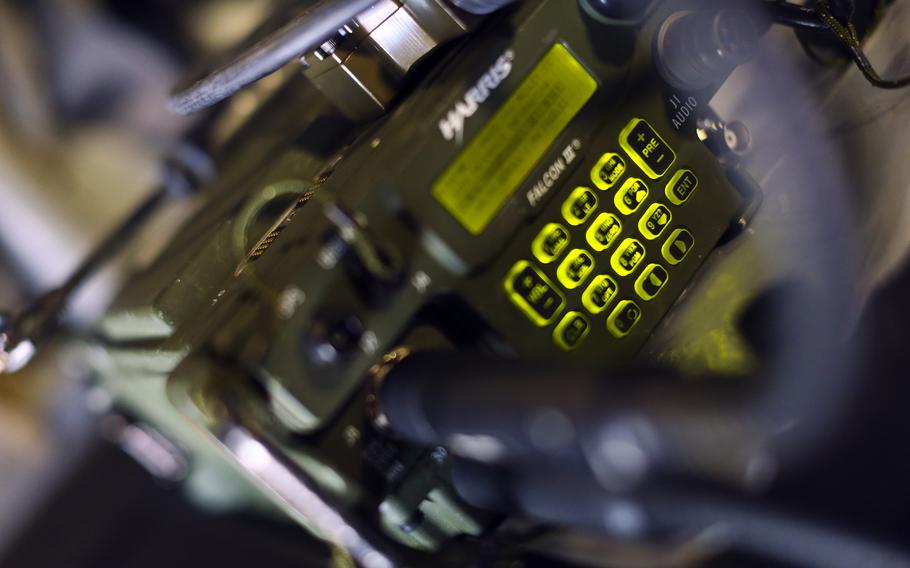
The Marine Corps is fielding thousands of new encrypted radios that are designed to give Marines more security while communicating on the battlefield. (Summer Dowding/U.S. Marine Corps)
Efforts to ensure that U.S. Marines can speak undetected on the battlefield are taking a step forward with major upgrades to the radios they carry, service officials said.
“The closest analogy to our current transition in radio technology is akin to moving from the era of flip phones to the advanced world of smartphones,” Richard Sessions, a program manager for Marine Corps Systems Command, said in a statement Thursday.
Since October, 4,000 of the multi-channel radios have been issued across the fleet. And the service is on track to deliver 50,000 upgraded radios by the end of 2024, the statement said.
Securing radio communications has been a big priority for the military to counter adversaries such as Russia and China, which have the technological know-how to cause disruptions across the electromagnetic spectrum.
While the wars in Iraq and Afghanistan didn’t present such challenges, a new era of great power competition has brought to the forefront the need to ensure that ground troops aren’t left vulnerable to attack from unsecured communication networks.
“A key focus in our communication systems’ rollout is minimizing detection and interception risks,” Sessions said. “We’re dedicated to making our systems challenging for the enemy to locate and disrupt.”
For the Corps, the communication improvements also are in line with a broader transformation known as Force Design 2030, which aims to return Marines to their amphibious roots as the U.S. prepares for a potential conflict with China.
As part of that reorganization, the Corps has gotten rid of tank units in favor of more agile formations that can work better with the Navy, which would have a pivotal role in any conflict in the Pacific Ocean.
At the tactical level, that means Marines need the radio technology to communicate without giving away their position.